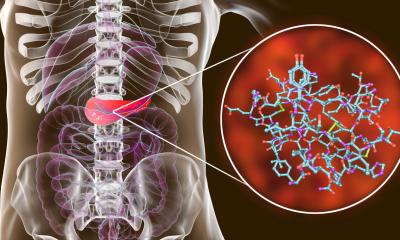
Image source: Adobe Stock/Mary Long
News • Meta-analysis challenges theory
Do depression and anxiety increase cancer risk? Not likely, says study
Depression and anxiety are thought to increase a person’s risk of developing cancer, but research results have been inconclusive.
In an analysis of multiple studies from the Netherlands, the United Kingdom, Norway, and Canada, investigators found that depression and anxiety are not linked to higher risks for most types of cancer among this population. The analysis is published by Wiley online in Cancer, a peer-reviewed journal of the American Cancer Society.
Experts have suspected that depression and anxiety may increase cancer risk by affecting a person’s health-related behaviors or by having biological effects on the body that support cancer development. Some research has supported an association between depression, anxiety, and cancer incidence, while other investigations have found no or negligible associations.
Our results may come as a relief to many patients with cancer who believe their diagnosis is attributed to previous anxiety or depression
Lonneke A. van Tuijl
To provide additional insights, Lonneke A. van Tuijl, PhD, of the University Medical Center Groningen, and her colleagues examined data from the international Psychosocial Factors and Cancer Incidence consortium, which includes information from 18 prospective study groups with more than 300,000 adults from the Netherlands, the United Kingdom, Norway, and Canada.
The team found no associations between depression or anxiety and overall, breast, prostate, colorectal, and alcohol-related cancers during a follow-up of up to 26 years. The presence of depression or anxiety was linked with a 6% higher risk of developing lung cancer and smoking-related cancers, but this risk was substantially reduced after adjusting for other cancer-related risk factors including smoking, alcohol use, and body mass index. Therefore, this analysis supports the importance of addressing tobacco smoking and other unhealthy behaviors including those that may develop as a result of anxiety or depression.
“Our results may come as a relief to many patients with cancer who believe their diagnosis is attributed to previous anxiety or depression,” said Dr. van Tuijl. “However, further research is needed to understand exactly how depression, anxiety, health behaviors, and lung cancer are related.”
Source: Wiley
09.08.2023










